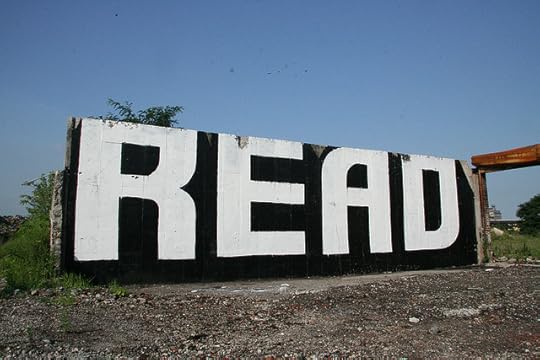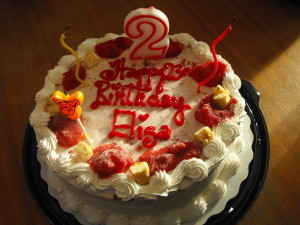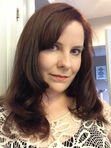Kate Larking's Blog: Anxiety Ink, page 49
July 20, 2015
Character Type: Tricksters

A couple weeks ago, Elisa asked about characters: what about them attracts us, and why? And what might that say about us?
Both as a writer and reader, I love sneaky characters. Tricksters. I love thieves and spies and assassins. I love when characters pretend to be something they’re not, particularly when discovery would put them in extreme jeopardy.
As a kid, this meant that I adored Robin Hood and Zorro. Discovering Tamora Pierce’s first Alanna book at age seven, I fell in love. Megan Whalen Turner’s The Thief? Watch me drool.
I love writing sneaky characters. I won’t claim to be good at it, but I love it. They’re harder, because so much is going on below the surface and the writer has to know what. The writer has to drop hints and foreshadowing without giving the trick away. Or maybe the reader is in on the trick, which presents its own set of challenges.
There are some blindingly obvious parallels between my love of characters who pass as something they are not and my love of theatre and acting. What it says about me? That I would make an awesome spy. 
July 16, 2015
Author versus Narrator Voice: Fighting First Person

In each of my high school English classes we had to write three main papers over the semester. A personal response, a non-personal response, and then one of our choosing. The personal ones were torture for me. They took me three times as long to write and four times as long to edit. I hated working on them. I hated handing them in. I hated getting feedback on them.
Really, I hated exposing myself.
So when I started writing short fiction in University, I stuck to the point of view I found most comfortable: third person. Throughout my writing career, I’ve stayed with third person as a kind of defence.
But as all writers know, some stories refuse to be written in third person. I bit the bullet and most of my short fiction turned into first person narratives. I found I enjoyed getting into my characters heads and letting them narrate. They were more connected to their circumstances than I ever could be, so obviously they were the ideal tellers of their tales, not me the “omniscient” story teller.
Like I ever truly know what’s going to come out on the page.
Now, as I write my first novel in first person, I find myself floundering. I originally started the story in third person, but by chapter three I knew it wasn’t working. My character demanded to tell her story in her voice. I had to oblige.
I’m still having problems with the story. I’ve narrowed it down to two main issues. One, being in my character’s head is problematic because she’s an emotional black zone for me. She’s too close to me in a lot of ways I find difficult to deal with. I’ve come up with ways to waylay this problem but I have yet to put theory into practice. Two, her voice won’t stay consistent!
I don’t notice this inconsistency until I go back and read what I’ve written. It’s embarrassing. I flip flop tenses and mix up pronouns as I slip into a kind of third person takeover. My voice does this, because I can tell the difference between her as the narrator telling the story and me as the author telling it.
I believe problem two is compounded by problem one. Totally immersing myself in her head is somewhat terrifying for me so I fight it. Third person is my shield. I’ve had that engrained in my brain for over a decade. And it’s habit to write from a distance.
Letting go of it is hard.
It’s funny and frustrating because I try to be personal when I blog and I have no issues with tense or voice. Throw me into my WIP and I turn into an editor’s worst nightmare.
I recently preped the first five pages of this WIP for my August workshop. The original pages were written in third person and they are so smooth. I think I’ve conveyed everything I want to in them –I can say that not having gotten feedback telling me otherwise yet. I actually did my first round of edits leaving it in third so I didn’t muddy it. The second round I changed it to first person amidst other edits. The whole process went so well I contemplated writing the entire manuscript in third and then changing it later -especially after I wrote one sentence and reread it so many times because the tense felt wrong. But right. But wrong. Finally I emailed it away because I couldn’t take the obsession anymore!
I know writing it in third than changing it later would be a huge time eater in the end, but still.
Has anyone else struggled with this inability to quiet the author voice and let the narrator have free reign? Am I worrying too much about this in a first draft? Am I overthinking this in my inexperience?

The post Author versus Narrator Voice: Fighting First Person appeared first on Anxiety Ink.
July 15, 2015
Pinterest–a writer’s best friend

I am struggling through some pages right now, grinding out words. At first, I didn’t have the best vision for where I was going. I knew the situation my protagonist was in. I knew my story. I knew the emotions I needed to convey. But I’m really really bad at description. And that was the area where I was lacking when I faced the project I needed to complete.
Enter Pinterest.
Pinterest is the best virtual scrapbook out there. Usually, I’d be saving magazine clippings and eventually (read: never getting around to) filing the images into my notebook. Saved for inspiration for my characters, worlds, settings…
Pinterest is my go-to social media when I have a few minutes. I collect images all the time for all sorts of different things.
Now, as I struggle, I’ve called on those images. I called up my Cyberpunk/Spacepunk Pinterest board and it was almost immediate that the words started to stir.
Follow Kate’s board Writing Inspiration – CyberPunk and SpacePunk on Pinterest.
I haven’t used my boards often enough, I realized. I should use them a lot more to get me centered before and during writing, to keep me motivated. After all, I have spent a lot of time gathering these images that spark stories in my head. It’s about time that I put them to use.
I have a lot of other boards packed away. I’ve sorted a lot of them out from the wild pinterest-ness and pinned them to where I can call upon them properly.
Do you use images to help you write? Gathering ideas? Sparking those initial threads?

The post Pinterest–a writer’s best friend appeared first on Anxiety Ink.
May 7, 2015
Happy Birthday To Me
It’s Annual Birthday Post time since my birthday was yesterday! Every year I like to take a moment to reflect on the year, and birthdays are a wonderful reminder to do just that. New Years provides a different kind of reflection for me. That’s when I set up goals and make plans to enable those goals to come to fruition. My birthday is a time to take a look at my personal growth over the past 12 months and see how I’ve challenged myself. What kinds of major accomplishments and setbacks did I face? What are my feelings about my current state of existence.
I had to read last year’s post for inspiration because I’m drawing a blank, which is ridiculous because I can’t believe how much I’ve done in 2014/15 after looking. Holy cow.
Accomplishments
Yet again I tackled PUBLIC SPEAKING IN FRONT OF STRANGERS at When Words Collide 2014 as a panelist; I traveled out of the country to the Sirens writing conference, which for me is a big deal, and met some awesome women; I launched my personal blog E.V. Writes; I published a story in an anthology and received my very first royalty cheque for it; Anxiety Ink signed on another wonderful Inkette who has brought so much to our little blog; I’m on track to have another piece published in a group anthology this year; and I have lots of WIPs to keep me occupied and my writing dream thriving.
Setbacks
The day job, yet again in flux, is proving to be more of a time and energy eater than I had anticipated this year. My inability to cope well with that is affecting how much writing I’m getting done, which in turn is affecting my ability to get one project properly off the ground. But considering this is all I have to complain about, I can’t not count my blessings.
Feelings
This is a tricky one, so I’ll keep it short and sweet. I am definitely not where I thought I would be in life at this age. However, my life is far from over, so I’m not going to worry about it. Besides, never having been this age, I didn’t know what to expect. I still don’t.
Taking all that in, no wonder the time has flown by.
Once again I won’t seriously discuss publishing goals, I hope to have a book finished and bound by the time I’m 30. That gives me 6 years to get myself together. That seems like a long time but given the way the past two years have sped by time will be eaten up a lot faster than I think it will.
My January goals are still going strong and I have nothing new to add to them. Making a better writing and living routine is my main focus at the moment. I feel better organized than I did this time last year, but I still need better structure.
I want to start my next year of life off on a positive footing, which I think I am. I’m forward focused with only myself as a hurdle. I think this year will be another great one!

The post Happy Birthday To Me appeared first on Anxiety Ink.
May 6, 2015
April Camp NaNo Wrap-up 2015
Oh, Camp NaNoWriMo, how I have failed you.
April was not a good month for me. I was still getting used to my new job, I was still bogged down with commitments I was keeping from when I was temp employed, and I could barely keep up with my social calendar. With personal issues and work conflicts abound, Camp NaNo this April really didn’t stand a chance.
Do I think I can do better in, say, July? Yes. I would like to try again in July. By then, I should be settled in fully at my job. I should have a better grip on the balance of my social life and full time work. I will have a relaxed period with all of my writing organizations and associations. Not to mention, July has an extra day in it 
My Camp NaNo count was a measly triple digit. I will fix this imbalance but there are areas in my life I need to adjust first.

The post April Camp NaNo Wrap-up 2015 appeared first on Anxiety Ink.
May 4, 2015
Writer’s Block and the Creative Well
We’ve talked before about the importance of refilling the creative well. Jessica has discussed it in a couple of her posts (here and here).
Last year, I wrote two novel rough drafts, along with a handful of short stories. Between working full time, spending time with friends and family, plays, and what traveling I managed to squeeze in, that’s . . . insane.
In retrospect, it’s no wonder my output is down so much this year. I’ve had a crazy case of writer’s block. But that knowledge hasn’t allowed me to have more patience or less judgment for myself.
I have this theory that my productivity has lessened so significantly this year because my creative well ran dry. And wow, the recovery time has been ridiculous. To make matters worse, I didn’t realize what was going on until I came home from the recent New York trip.
The trip was amazing: visiting a friend, meeting even more awesome people, wandering and exploring and observing, visiting museums, watching a show that challenged my ideas of what a play is . . .
I’ve been writing more since then. I’m still not to the point of tackling any big, novel-sized projects, but the short stories are clamoring for attention.
The point is that all sorts of things can contribute to writer’s block. While traveling isn’t always feasible, taking time out to fill the well is necessary. Take a walk somewhere new, visit a library or museum (or both), see a play – do something for you.
So what have you done to refill the well lately?

The post Writer’s Block and the Creative Well appeared first on Anxiety Ink.
April 30, 2015
Hello Side Characters, Where Did You Come From?
I don’t know about you, but I have a small issue with my side characters that involves forgetting that they’re there. Oops? At least it’s only a real problem during my first drafts.
For the most part.
Admittedly, I have a lot less writing experience than my fellow Inkettes. And during a first run through a story I have severe tunnel vision. I stick to my main character like super glue and move us along from point A to B to C with very little interruption. My first drafts are like oddly detailed schematics of plot and character growth/change peppered with little comments about things I think will engage the reader and/or throw my character through a loop. It’s my organic post-outline product.
I’m not sure if this issue is lack-of-experience quirk or not.

Of course, in my tunnel-vision state, I forget that the world is full of other people unless a scene calls for direct interaction. Don’t get me wrong, during the initial planning stages of a story I flush out my cast, sometimes to extreme detail. Depending on the length and style of the story, I know as much about my supporting cast as I do my protagonist. I also note the significant aspects of my periphery people. I simply have a tendency to leave them off the board until I hit a scene where I need them or I remember they’re there.
For instance, my current short story project is supposed to have crows play an integral part in the story. They’re not allowed to just fly overhead in a scene. My pair of birds are relevant to my antagonist, not just my protagonist. They serve a legitimate role and are important for my foreshadowing. Trying to recall that while creating did not go well. Every once in a while I’d remember they were present so some feathers would rustle –ok, I think I used rustle 10 times– and they kuh-cawed once. Maybe twice.
That’s it.
I’m in the early stages but I am notorious for allowing this problem to persist until I’ve tweaked my main character and their part of the story just right. I don’t want to do that this time around. I’ve fashioned a plan of action to help my cause. It may be a bit of extra work, but I intend to draw up and draft my crows’ arc because they do have their own goals beyond my protagonist that counter my antagonist’s. I’m then going to join that with my main story arc and look for the overlaps where the crows can really shine in my story. Then, they shouldn’t move like pawns that I use when I need filler.
I’m anticipating a richer subplot if nothing else. Wish me luck!


The post Hello Side Characters, Where Did You Come From? appeared first on Anxiety Ink.
Creative Ink Festival Recap
I spent this past Saturday in Vancouver at the inaugural Creative Ink Festival, hosted by the always wonderful Sandra Wickham. It was a blast! I started the day post-welcome with a panel on diversity, which I moderated. Some good points were made about the need for representation and the need to integrate diversity into more than just your fiction if you want to make a difference.
Then I did Blue Pencil sessions as an editor, which is always fun. I read your pages while you sit nervously watching me, and then I tell you what’s wrong with them. They can actually be really helpful. I got to discuss pages with a comics artist (who had chosen me to work with because my picture looked like I’m a nice, friendly person–HA).
After that I took a long lunch break. My fibro was acting up the entire trip and I was exhausted from the moment I’d landed, so a nap and a relaxing lunch helped.
Kristene Perron gave a talk on the basics of self-publishing after lunch that I attended because it’s an area of publishing I don’t know as much as I would like about but has, of course, gained traction and credibility over the years, so I was curious. My big takeaway was that publishing has diversified because people have different goals and different expectations and levels of comfort with the process. You have to decide what you’re comfortable with and what you really want out of your writing before you can approach publishing in any way.
Next was the Best Advice I Ever Received panel with Patrick Swenson, Danika Dinsmore, Katrina Archer, Lisa Voisin and Bevan Thomas. My favourite gems from that was entertain the possibility the other person may be right, and to think on the page. Put everything down. You can discard or edit later, but keep working.
Mark Teppo was the Guest of Honor, and he gave a great presentation on giving yourself permission to be creative. To be fair, it was more about how to make yourself write, which isn’t quite the same thing, but it was still really good and my favourite of the things I attended. He said (and in cases of longer things, I’m paraphrasing):
Write because you want to. Write a book you believe in.
Compartmentalize. Novels are massive beasts and can be broken into bite-sized chunks. Today you just need to [write the scene with the puppy] or whatever. A novel isn’t a project that is finished in one day. The interval between something and nothing is small (Devon Boorman said that in his keynote speech).
Planning is guessing and sometimes you guess wrong. Nothing is insurmountable, you just haven’t figured it out.
A good book is a book that is finished–everything else is out of your control, so go write the next book. Don’t beat yourself up for not finishing the book in the time you think it should take you; it will always take longer than you think. Move on. No one is going to buy the book because you’re the best procrastinator, they’ll buy the book because it’s done.
Write when you’re freshest.
If you can’t shut off your editor brain, create an alter ego who does your first drafts. As an editor, we don’t expect our writers to turn in perfect manuscripts, so pretend you’re one of your own authors instead.
After that I took a small break again, and then there was a live action slush reading, which is always a fun time. The conference ended with some plans for next year, and then it was a fun dinner and after party.
The gift bag had some fun swag in it (I would know cos I helped stuff ‘em). Books included Shakespeare for Slackers: Hamlet, Things Withered, A Method to the Madness, and The Steel Seraglio. We bought Rigor Mortis, Broken Times Blues, and Heraclix and Pomp.
Because the festival was new, it was relatively small (about 100 people all together), but with hopes it’ll grow every year. If you’re in the Vancouver area April 22-24 next year, I highly suggest you check it out.

The post Creative Ink Festival Recap appeared first on Anxiety Ink.
April 29, 2015
Finding my way back to reading
It’s the piece of writing advice you see everywhere: “If you want to be a writer, you should start by reading everything you can get your hands on. Read in your genre. Read outside of your genre. Read everything.”
Said every writer.
Ever.

Source: Read by carnagenyc, on Flickr
With that as the case, then I have been a very poor writer in the last little while. The last long while, really.
I read…but I mostly read manga. Which doesn’t help me too much when my art form is prose. Everyone nags me to fix this issue. Friends. Inkettes (especially Jessica :P). The Wife.
So I finally carved out the time. One fiction book down, one non-fiction chapter down.
And I can tell you, I really really missed it. I’m able to approach the book for not only enjoyment, now, but as a writer. I can see the pieces better, the foreshadowing, the multi-faceted plot and character elements that take turns moving the story forward.
With non-fiction, I’m getting multiple ideas per page, fleshing out worlds and charting a plot to drive my characters forward.
Are you reading? Too little? Too much? Do you still have time for your words? Or does all your reading support your words?

The post Finding my way back to reading appeared first on Anxiety Ink.
April 27, 2015
Writing To Limitations; or, The Joy Of Boxes
“Think outside the box.” We hear this advice all the time in so many scenarios. What it’s really saying is, “You know the standard expectation/solution? Go beyond that.”
But what happens when you take the box away?
A select few people do well without that box. They flourish and grow as they realize that anything is possible, reaching further and further outside the box of societal and cultural norms.
One of the most terrifying parts of being a writer is facing the blank page. Starting, the possibilities are overwhelmingly endless. It’s one reason so many people just don’t start. They run away and do something simpler, more structured.
I’ve been there and done that. We all have, at some point.
And really, my best stories seem to come when I have a box. My theory? Limitations – a box – provide a basic framework, a kind of scaffolding to build on. It provides a foundation from which to break tropes, to take more inventive and unexpected directions, and perhaps an opportunity to tell a story beyond what I thought myself capable of.
And, really, as we craft our stories, we’re building our boxes. We’re just less conscious of restrictions we place on ourselves than those from another source. Like a prompt in class or a book on writing.
Who else is with me on this? I’m curious to see who else may have noticed this. And please share your favorite prompts in the comments!

The post Writing To Limitations; or, The Joy Of Boxes appeared first on Anxiety Ink.
Anxiety Ink
- Kate Larking's profile
- 53 followers




